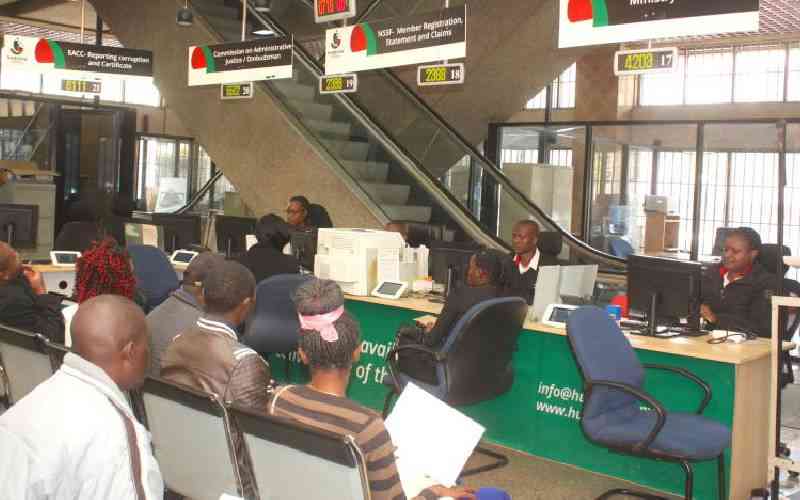A new report singled out red tape in the acquisition of county permits citing them as barriers for investors.
This is one of the challenges foreign investors face in a country, with a designated agency with a mandate to facilitate investors to set up shop.
The Kenya Investment Authority (KenInvest) however, as documented in the latest World Investment Report 2024 published in June, does not facilitate investors to acquire permits and licences.
The UN Trade and Development, formerly UNCTAD, which authored the report, notes that even with the government having digitised most of its services, currently at 17,000, the process of onboarding a new investor in the country is disjointed.
“Despite significant advances in digital government services in Kenya, notably through the eCitizen platform, new businesses and investors are still encountering multiple, disjointed registration processes and authorisations, including for licenses and permits needed to operate in regulated sectors and counties,” reads the report.
The report says although some applications can be completed online, the lack of integration among systems adds significant barriers for investors and entrepreneurs.
It says there is a pressing need for enhanced facilitation to elevate investment levels sufficiently to address interconnected economic, health, security, and climate challenges.
“The Kenya Investment Authority offers one-stop in-person services such as assistance with foreign taxpayer registration, electrical grid connection, and work permits. However, its services do not extend to crucial permits and licences at the county, sectoral, or environmental levels,” the report states.
KenInvest services, the report adds, cannot comprehensively register investment projects online, collect data, or provide effective investor aftercare services, which are essential for monitoring and supporting successful investment outcomes.
A case in point is the fight between Tatu City and the County Government of Kiambu involving the approval of a new masterplan, with the developer accusing the county executive of seeking favours so as to approve the project.
Kiambu Governor Kimani Wamatangi however said the county had asked Tatu City to surrender some land for public use.
“The law mandates private developers allocate land for public facilities such as schools, hospitals, fire stations, recreational acres, police stations, playgrounds and other utilities,” he said..
“It is important to note that the 54 acres requested is just a drop in the ocean of the 406 acres that were earmarked for public use during the approval of the initial master plan.”
Tatu City is one of the pioneering Special Economic Zones in the country that hosts several multinationals in different sectors like technology and manufacturing.
Delaying the approval, argued the developers, could cost the country more than Sh15 billion.
To remove this disjointed approach in FDI, the UN Trade and Development is developing the Kenya Investment Single Window project.
“It will introduce an online system to streamline the investment process in the country and enhance the government’s capacity to attract and monitor investments effectively,” the report says.
The system is expected to connect with existing government databases such as the eCitizen portal, the Kenya Revenue Authority’s iTax system, and county government portals.
“This integration will enhance the functionality of existing platforms, making it easier for businesses to navigate the regulatory environment,” the report adds.
KenInvest has an ambitious target of attracting Sh1 trillion worth of investments by 2027 in its 2023-27 strategic plan.
The plan documents that budgetary constraints, conflict of roles with other agencies, and looming merger in the government’s fiscal consolidation strategy are some of the hiccups the authority experiences in conducting its responsibilities.
The disjointed approach to attracting investment is also documented as a key challenge in the strategic plan by KenInvest.
“KenInvest, although primality promotes and facilitates investments in Kenya, faces a challenge in the lack of a unified approach to investments by other relevant government agencies, resulting in an investor journey that is fragmented and inefficient,” the strategic plan reads in part.





















Discussion about this post